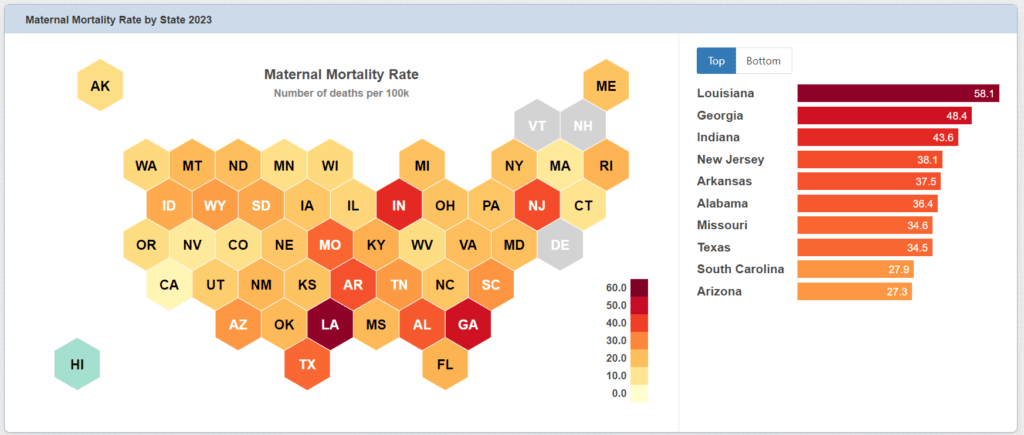Healthcare is broken. Nowhere is the popular refrain more evident than in poor and disadvantaged communities spread across the globe, from Africa, South America and Asia to the heartland of the United States. The poor pay for their poverty, often with the ultimate price, their lives. In third world countries the problem relates to a lack of care facilities, while in developed nations like the U.S, cost prevents access to care,
Social care programs aimed at indigent communities offer some level of care, but these are generally restricted to emerging economies. In first world countries like America, if you are poor, you are denied even basic care. This is compounded by systemic prejudices that discriminate against race and sex. A pregnant women who describes herself as black and indigent faces insurmountable challenges to secure care for herself and her unborn child.
In first world economies like America, this is inexcusable and serves as a damning indictment against the infrastructure that controls the delivery of care. It is a status quo that is allowed to continue unchecked for various reasons that are not of relevance here, What matters, is that it exists and persists.
Louisiana’s maternal mortality rate of 58.1 deaths per 100,000 births is the highest in the United States. The rate is about four times higher for black mothers than it is for white mothers, an issue that boils down to implicit bias. 59% of black maternal deaths are preventable, compared to 9% of white maternal deaths.
In third world countries, often referred to as developing economies, the issue is more complex. While governments like the Philippines roll out country wide community based structures to assist indigent mothers to access basic care, that care lacks in the often critical technology available to those of means. Ultrasounds cost money, blood tests cost money and delivery, if a CS is required, can and does bankrupt families. Newborn screenings are often overlooked and infant mortality and the associated costs of diseases that could have been avoided with early intervention, escalate.
I have been involved in healthcare for nearly three decades and I have sat by idly, engaging in the favored pastime of the industry. Highlighting these inequalities and pontificating about potential solutions. Over the last three years, spurred on in no small part by the pandemic and healthcare’s response, I have been forced to re-evaluate the ability of the industry to deliver care to these communities.
There is no shortage of remarkable ideas, what’s missing is the will to execute them.
Seth Godin
I now believe they are unwilling to do so, for the simple fact that there is no financial gain in pursuing any course that deviates from the standard delivery of care protocols. Doctors have become as much the victims of these systems, as the patients they serve. Aid focuses on creating dependencies in the markets it touches. Only models that fit into the annual cycle of donor funded aid are supported.
It’s an unpleasant realization, that the industry you consider home has forsaken their humanity in favor of shareholder returns and profit, but it is an undeniable fact. This realization has placed us on a new path, one that I firmly believe will lead to change. Incremental change, but change none the less.
It falls to us, as individuals within this industry to step up, to uphold our oaths to serve our patients and to provide actionable solutions that have a very real and immediate impact on the health of disadvantaged communities that suffer under this broken system. This is the vision that drives Clinics IV Life. It is why it was created and why it will succeed, with your help.
I firmly believe that the majority of healthcare providers share this goal, but are unable to address these inequalities whilst operating in the restrictive environment we currently describe as healthcare. Clinics IV Life severs these restrictions, empowering doctors to deliver care and develop a thriving practice that focuses on the needs of the patient. Although our clinic model is focused on maternal and pediatric care, there is no reason that this model could not be expanded across the various disciplines of medicine.
Sustainable delivery of care where it really matters, combining a mix of decentralized medicine and embracing the functional parts of healthcare, all with a singular goal. Empowering doctors to practice their best medicine, for the benefit of their patients.
We need your help, financial and otherwise to power these changes. Join us and help us create a system of care that harkens back to the original principles espoused by Hippocrates. Let’s break the chains of systemic injustice and dependency visited on the poor and work towards a world where your skin color, sex and financial standing do not determine your access to care.
Our goal, as charities, should be the singular pursuit of putting ourselves out of work.
If this is an issue you care deeply about, you can also reach out to us to volunteer your time. We appreciate any offers of help, and we can almost always find a place for you to contribute towards the health of these fragile communities.
Robert Turner, Jan 2023 – Manilla, Philippines
